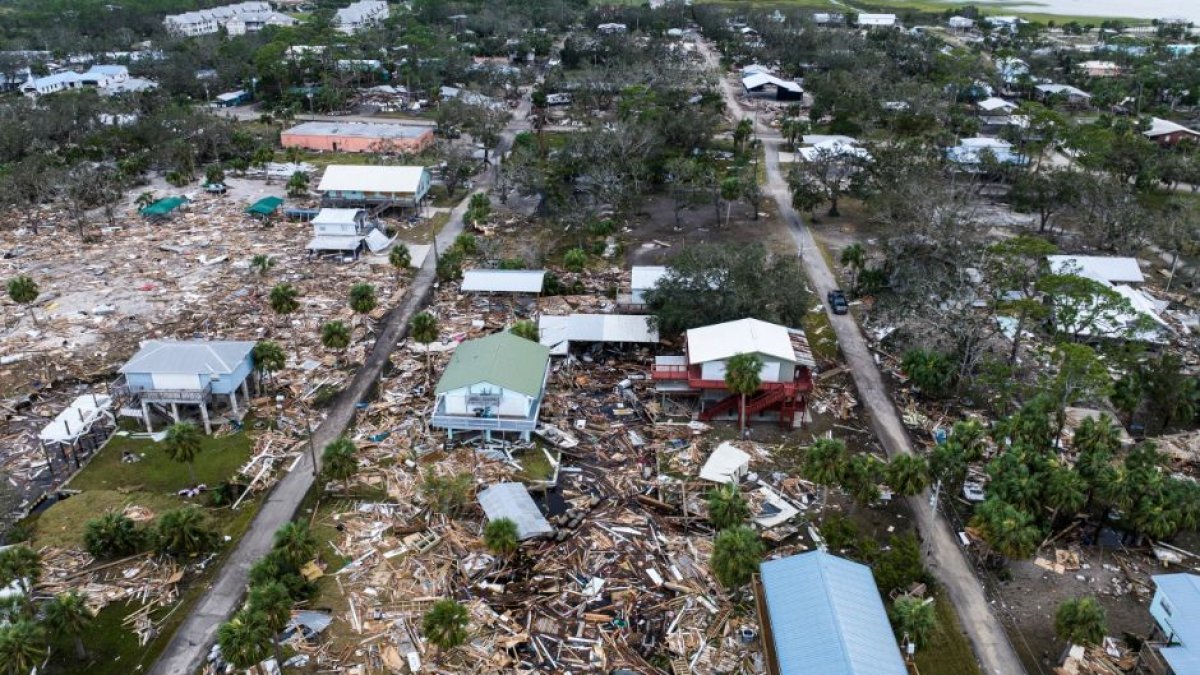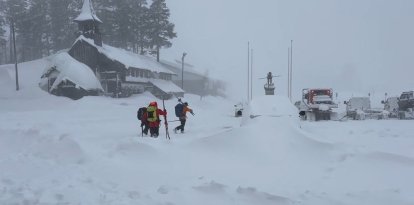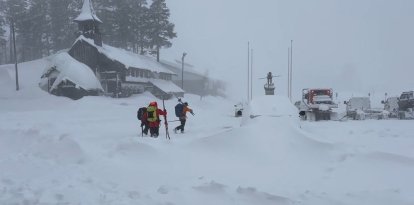Hurricane Helene: Human tragedy and economic losses that could reach 35 billion dollars
The storm’s impact includes at least 130 deaths, more than 600 people missing and devastating economic losses.

Aerial view of damaged homes after Hurricane Helene made landfall in Horseshoe Beach, Florida.
Hurricane Helene has left behind not only a tragic loss of life, but also a devastating economic impact, with damage estimates that could reach tens of billions of dollars. According to insurance industry experts, total losses could reach $35 billion, although some projections put the cost at more than $100 billion. This encompasses not only direct physical damage, but also indirect effects on the economy.
Deadly impact and economic havoc
With at least 150 lives lost and more than 600 people missing in several states, the magnitude of the tragedy is becoming increasingly apparent. Steve Bowen, chief scientific officer of Gallagher Re, a reinsurance company, indicated to Axios that a minimum of $20 billion in economic losses, with the possibility of increasing to $35 billion in total, especially considering the effects of flooding and winds caused by the storm. However, he clarified that many homeowners in the affected areas lack federal flood insurance, creating a notable disparity between the total cost of damages and the coverage available.
What Bowen does ensure is that Helene is unlikely to generate the same upheaval in the insurance market as Hurricane Ian did in 2020, which resulted in insured losses of between $50 billion and $60 billion. Insurance companies are in a stronger financial position than in previous years, suggesting that the industry can absorb the costs of this new storm without significant problems.
Challenges in response and recovery
According to the American Red Cross, search and rescue missions have been ongoing in western North Carolina, where more than 2,400 people are currently in temporary shelters. The survivors' most urgent needs include shelter, food, and especially bottled water. More than 1.5 million people were without power, particularly in Georgia and South Carolina, where downed trees have caused severe damage to electrical infrastructure.
The situation in Asheville is critical, as significant portions of its water system have been rendered inoperable and require extensive repairs. The extent of the damage has overwhelmed utilities' response capabilities, and they are forced to rebuild entire infrastructures rather than make repairs.
Future preparedness
Weather and safety experts wonder what more could have been done to prevent the significant loss of life. Despite the stern warnings issued by the National Weather Service, many people in vulnerable areas may not have fully understood the risk posed by Helene.
Research suggests that people tend to base their preparedness on past experiences, and many people in western North Carolina have no memory of previous severe flooding, which complicated their response to the storm. "People hear these really dire forecasts, but they've never lived through them and I don't think they're able to really understand what the worst-case scenario means," Bowen commented, highlighting the need for better communication and education about weather risks.

























